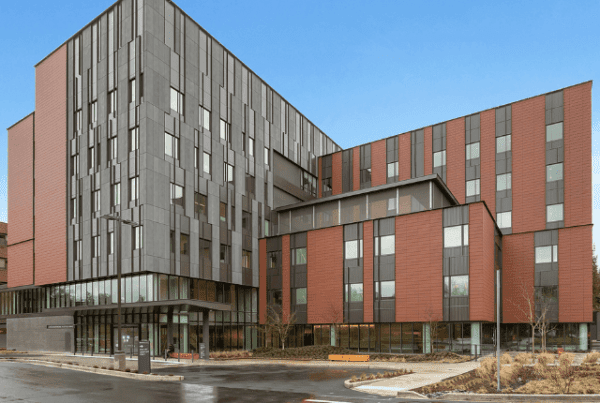Today marks the 37th national celebration of the life and legacy of civil rights leader Rev. Dr. Martin Luther King, Jr. It also marks the second year that we have moved our UW Medicine and Health Sciences observance, “Overcoming Crisis Through Community,” to a virtual space due to the pandemic. Here you will find the inspiring stories of our Community Service Award winners, a powerful collection of music and art, and reflections on what we can do individually and collectively to achieve Dr. King’s vision for racial justice.
During times like these, when we are exhausted and stretched to our limits by two years of the pandemic, we know that it can be hard to feel hopeful. In this, Dr. King’s persistence while facing adversity can serve as inspiration.
We should also remember the whole of who he was and what he stood for. During his lifetime, Dr. King was indeed considered radical. He was jailed for nonviolent protest. He was subject to wiretapping, surveillance and an illegal smear campaign by the government. And while he did believe in nonviolent resistance, civil disobedience and peaceful protest, he distinguished what kind of peace he meant in his “Letter from Birmingham Jail,” where he contrasted those who prefer “a negative peace which is the absence of tension” with those who prefer “a positive peace which is the presence of justice.”
In our pursuit of positive peace, we acknowledge that much of Dr. King’s dream has yet to be realized. The pandemic and ongoing social justice issues continue to shed light on the injustices and discrimination Black Americans, including our Black colleagues, face daily. People across UW Medicine have been faced with discrimination against their racial identity, ethnicity, gender, sexual orientation, disability, class and more.
We encourage everyone to consider how they can apply Dr. King’s commitment to community service to their own lives and communities. This can be something as long-lasting as volunteering regularly at a local nonprofit organization or something as simple as assisting a neighbor in need. Each of us can use our skills and strengths to support our communities and make a difference. We also encourage you to revisit our Commitment to Anti-Racism and continue to advance anti-racist practices within our organization and in your community.
Please join us in thanking the members of the Martin Luther King, Jr. Tribute Committee for organizing our virtual celebration and for making it such a meaningful tribute to Dr. King’s life and legacy.
Sincerely,
Paul G. Ramsey, MD
CEO, UW Medicine
Executive Vice President for Medical Affairs
and Dean of the School of Medicine,
University of Washington
Paula L. Houston, EdD
Chief Equity Officer, UW Medicine
Associate Vice President for Medical Affairs
University of Washington
Lisa Brandenburg
President, UW Medicine Hospitals & Clinics
Vice President for Medical Affairs,
University of Washington
Jacqueline Cabe
Chief Financial Officer, UW Medicine
Vice President for Medical Affairs,
University of Washington
Timothy H. Dellit, MD
Chief Medical Officer, UW Medicine
Vice President for Medical Affairs,
University of Washington
President, UW Physicians
Ruth Mahan
Chief Business Officer, UW Medicine
Chief of Staff, UW Medicine
Vice President for Medical Affairs,
University of Washington
Don Theophilus
Chief Advancement Officer, UW Medicine
Vice President for Medical Affairs,
University of Washington
Cindy Hecker
Chief Executive Officer
UW Medical Center
Sommer Kleweno Walley
Chief Executive Officer
Harborview Medical Center
Jeannine Grinnell
Chief Executive Officer
Valley Medical Center
Anthony Dorsch
Executive Director
UW Physicians
Debra Gussin
Executive Director
UW Neighborhood Clinics
Associate Vice President, Primary Care and Population Health
UW Medicine
Jeff Richey
Executive Director
Airlift Northwest

